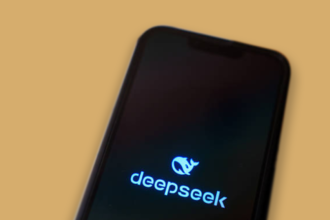According to reports, Google’s “Willow,” a revolutionary new quantum device, can solve problems in five minutes, which would take the fastest supercomputers in the world 10 billion years to finish. Although experts warn that the chip is still an experimental device and that practical, real-world applications are still years away, it does mark a substantial advancement in quantum computing.
- Quantum computing: What is it?
- What Is the Significance of Google's Willow Quantum Leap?
- When Will It Be Possible to Use Quantum Computing in the Real World?
- How Are Scientists Overcoming Quantum Computing's Obstacles?
- How is the future being shaped by the global investment in quantum computing?
- What Does Quantum Computing Hold for the Future?
- Which Quantum Computing Approaches Are Competing?
Quantum computing: What is it?
The goal of the cutting-edge area of quantum computing is to use the behavior of minuscule particles, or the laws of quantum physics, to execute calculations much more quickly than conventional “classical” computers. Quantum computers use quantum bits, or qubits, which can exist in several states simultaneously, greatly enhancing their processing capability in contrast to conventional computers that process information in binary form (0s and 1s).
Genesis Mission: AI Platform Driving Scientific Discovery
Quantum computing holds enormous promise. Eventually, it is hoped that quantum computers will be able to produce new drugs, figure out complicated logistics issues, and even break encryption systems that are currently believed to be secure. However, quantum computers do have certain drawbacks.
What Is the Significance of Google's Willow Quantum Leap?
Google’s most recent chip, Willow, represents a significant advancement in quantum computing. The business claims that Willow can solve issues in five minutes, which would currently take conventional supercomputers 10,000,000,000,000,000,000,000,000 years to finish. The chip’s application of quantum mechanical principles, which enable it to handle complicated problems tenfold quicker than traditional computers, is responsible for this striking speed advantage.
“Willow is the best quantum processor built to date,” said Hartmut Neven, head of Google’s Quantum AI lab, about its significance. It combines several significant innovations and opens the door to a practical, large-scale quantum computer. Neven noted that although Willow is excellent, it is still primarily an experimental device despite the hype surrounding the new chip. He says it will take years to prepare quantum computers for general, helpful applications.
When Will It Be Possible to Use Quantum Computing in the Real World?
Despite Willow’s unquestionably remarkable performance, experts warn that the chip must still be equipped to handle large-scale real-world issues. “Before the decade’s end, the chip would not be able to perform commercial applications,” Neven clarified. Initially, systems where quantum effects are crucial, like nuclear fusion reactors, medication discovery, and enhancing energy storage devices, will be simulated using quantum computers like Willow.
Surrey University computing expert Professor Alan Woodward provided a more circumspect assessment of Willow’s accomplishments. “It’s important to avoid making unrelated comparisons. Google selected a benchmark problem explicitly designed for quantum computing, which does not show universal speedups compared to classical machines. Woodward stressed that although quantum computers have great potential, they won’t soon replace conventional ones.
How Are Scientists Overcoming Quantum Computing's Obstacles?
The problem of errors is one of the main obstacles to creating useful quantum computers. In quantum computing, a chip’s error rate increases with the number of qubits it contains. However, Google’s researchers have made a significant breakthrough by lowering the mistake rate as the number of qubits increases. This discovery is considered an essential step in improving the practicality and dependability of quantum computers.
“The issue of growing errors as the number of qubits increases has been reversed,” Neven stated. It’s similar to having a single-engine airplane, which will function, but two or four engines are safer. Error reduction is essential for creating workable quantum computers. Although Willow’s error rate has considerably decreased, experts point out that more reduction is still required for it to be genuinely beneficial for large-scale applications.
How is the future being shaped by the global investment in quantum computing?
With the UK recently establishing the National Quantum Computing Centre (NQCC), nations worldwide are investing significantly in quantum computing research. NQCC director Michael Cuthbert recognized the importance of Willow, calling it a milestone rather than a breakthrough. He remarked, “It’s an imposing piece of work.” According to Cuthbert, in the future, quantum computers will be able to assist in resolving intricate logistics issues like the distribution of cargo and freight, the routing of telecom signals, and the optimization of energy storage on national grids.
A growing quantum sector is already present in the UK, where more than 50 quantum companies have raised £800 million in funding and employed about 1,300 people. This expanding sector reflects the optimism surrounding quantum computing’s potential to transform several industries in the future.
What Does Quantum Computing Hold for the Future?
Willow is still far from ready for commercial use despite being a major advancement in quantum computing. Experts concur that real-world uses for quantum computers are probably years or even decades away. Nevertheless, Google’s developments with Willow have opened the door for more innovations, especially in qubit scalability and error correction.
Willow’s creation also exemplifies the larger pattern of global cooperation and funding for research into quantum computing. As more nations and businesses invest in this area, the next ten years could see significant changes in the computing industry.
Quantum computing is still in the experimental stage, but scientists are hopeful about its future. “We have only just begun to explore the possibilities. Although quantum computing has a bright future, much more must be done.
Which Quantum Computing Approaches Are Competing?
Despite the importance of Google’s quantum computing initiatives, other companies are also making progress in the area. Researchers from Oxford University and Osaka University in Japan recently released a report demonstrating an extremely low error rate in a trapped-ion qubit. This strategy differs from Google’s in that Willow’s chip needs to be maintained at extremely low temperatures to work properly, whereas Google’s chip can function at ambient temperature.
The competition to create a workable quantum computer is intensifying, and as new technologies are developed, it will be fascinating to observe which strategy works best for resolving some of humanity’s most challenging issues. But for now, Willow continues to be a noteworthy accomplishment that suggests a bright future for quantum computing.








